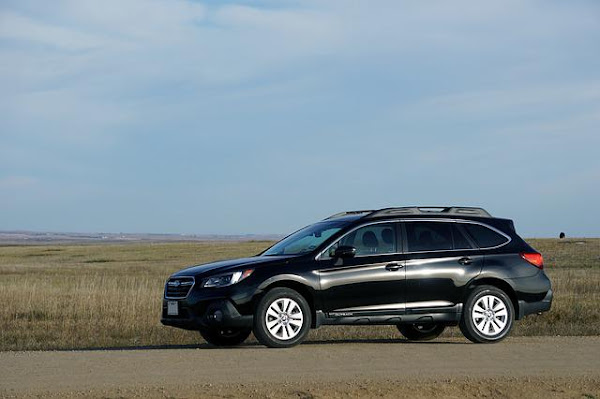 |
| Image by Mike from Pixabay |
I suppose "ruggedizing" isn't a word, but it should be. It would refer to making a motor vehicle more rugged, or at least making it look more rugged. Lift it, add an all-wheel drive system, and slap black plastic cladding all over it so Americans will buy it. Few people need vehicles like this, but that doesn't matter. Automakers have learned that "ruggedizing" their vehicles is an effective way to get Americans to buy them. I suspect it doesn't matter if the vehicle is any more capable as long as it looks like it might be.
I'm not writing this to condemn anyone. I can't claim to be immune to this tactic either. I'd like to think that's because I prefer utility over luxury. That may have something to do with it, but it doesn't explain the appeal of these vehicles. I suspect I've fallen victim to the "ruggedizing" trend too. Like many Americans, I'd like to be part of the "active lifestyle" crowd even though I'm not.
So what? I'd guess these vehicles aren't great for our climate crisis. Increased ground clearance and unnecessary plastic bits aren't great for aerodynamics. We want the largest wheels we can fit even though that makes the ride less comfortable. Some even insist on all-terrain tires and reinforced roof racks. None of this helps gas mileage. Automakers compensate with underpowered engines and joyless transmissions. Americans line up to buy vehicles that are less fuel efficient because they look more rugged.
Why is having a vehicle that looks cool more important than saving gas? I'm not sure, but this seems to be the case. We commute to work in something that would look more at home in the world of Mad Max than on most city streets. Most of us don't need vehicles like this. We wish we did, but we don't. We are making many sacrifices for style and many more to maintain our "active lifestyle" fantasy.
I've had to come to terms with the fact that my ideal vehicle does not exist. Nobody makes anything like it, and that might be because I'd be the only one who would buy it. I don't want leather (real or fake) anywhere in the vehicle. I want as much hard plastic as possible but none of the glossy black stuff. I don't want carpet; I want more plastic and rubber. Drain holes in the floor would be nice. I want as much utility, durability, and reliability as I can find. I don't want all-wheel drive because I have no need for it. I'll skip the sunroof but take the upgraded stereo. I don't want any touch screens or capacitive controls.
The aspirational lifestyle vehicle is so popular. Many of us will never need increased ground clearance, all-wheel drive, or a bulky roof rack. It doesn't matter because we want to be the kind of people who might need these things. We aren't, but we want to be. That's where the "active lifestyle" fantasy kicks in.
We spend most of our lives sitting in front of computers. We'll never go off-road, but we want to be able to do so. We will never use that roof rack, but we still want it. There wouldn't be anything wrong with this if it didn't impact our gas mileage as it does.
I'd never tell somebody not to buy one of these "active lifestyle" vehicles. I can't deny the appeal. We are all going to buy what we want and can afford anyway. As we do, we should acknowledge that these vehicles are not as fuel efficient as they could be. We should at least ask ourselves whether the sacrifices are worth it.
When you see that jackass open-carrying at the grocery store, do you see any parallels? Don't you suppose he has fantasies of stopping the next mass shooting? I'd like to think the "active lifestyle" vehicle buyers are less dangerous. I suppose that may depend on whether we are thinking about the climate crisis.